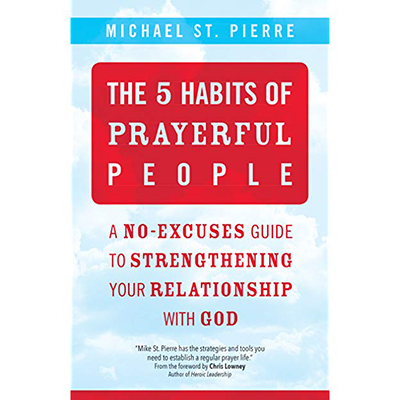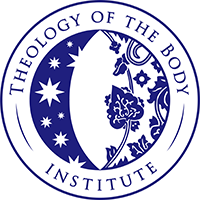

The Surprising Habits of Prayerful People
The Surprising Habits of Prayerful People

I met Christopher West in 1993 as a sophomore at the Catholic University of America. As he was diving headlong into a journey of Saint John Paul II’s theology of the body, I faced a spiritual crisis.
I did not know how to pray.
Having been raised in a Catholic home, I was well-versed in saying prayers. It was the act of praying that was the problem. To sit alone with God for a few minutes was more than intimidating. I had a base relationship with the Lord but lacked the confidence to pray on a regular basis. I’ve met many Catholics who can relate.
Back to my existential crisis in college. I thought, “How could I be a 19-year-old Catholic and not know how to pray?”
Surely it had been enough to go to youth group and attend Sunday Mass… or so I thought. What I found in college was that I lacked the skills of prayer. I looked every bit the part of one who was prayerful but a look under the hood provided a different picture. I’m not that unique — prayer is not something that Catholics are particularly comfortable talking about. As with sex or money, prayer is one of those things that we keep close to the vest.
My attempt to answer this private angst was to go it alone, squirreling myself into my dorm room with a pair of cheap rosary beads and a how-to pamphlet. As I thumbed the beads and tried my best to meditate on the mysteries and prayers, everyday college life swirled around me. Friends studied, played music, and laundry machines churned.
There I was, behind closed door with my rosary beads, trying to pray. It was the farthest thing from a mystical experience. Still, it was a start.
Since that day, I’ve been on a quest. The journey has ultimately led me to a practice called prayerfinding. Think of it as speed-dating for your prayer life. Year after year, I have tested out various forms of prayer, pausing long enough to see which ones would stick. This effort was simply a response to God’s pull on my life. As Henri Nouwen said, “I am deeply convinced that the necessity of prayer, and to pray unceasingly, is not as much based on our desire for God as on God’s desire for us. It is God’s passionate pursuit of us that calls us to prayer.”
A second development, in addition to trying out different forms of prayer, has been the application of workplace practices to daily prayer. “Life-hacks” as they are commonly known, are clever approaches to work, saving you time and effort. A life-hack might be a smarter way to schedule your meetings or an app that organizes your projects.
This has translated nicely, and my new book, The Five Habits of Prayerful People: a No-Excuses Guide to Strengthening Your Relationship with God (Ave Maria Press) spells out dozens of strategies for prayer.
Two techniques that have been especially helpful are worth sharing.
First, try the ACTS method of prayer and second, choose one day per week for a digital sabbath. Admittedly, these are not original ideas. What difference do these make? First, the ACTS method (Adoration-Confession-Thanksgiving-Supplication) is easy to remember and even easier to practice. In less than 10 minutes, ACTS provides a wonderful medium for your prayer. It cannot be easier and if practiced daily, builds the muscle of prayer. You can use ACTS while you are waiting for Mass to begin or in the comfort of your own home. For me, a day that doesn’t start with a good cup of coffee and a few minutes of ACTS feels off kilter.
Most of us do pray but sporadically and without much confidence. The ACTS method produces spiritual momentum which trumps occasional gaps in willpower.
The second strategy, a digital sabbath, is particularly useful in the digital age. As smartphone addiction has become very real, the occasional “pause” breaks the compulsion to check our phones. By putting our devices aside one day a week, our prayer lives receive added vigor and the space in which to grow. We become less distracted and more comfortable with silence. As Saint Teresa of Calcutta reminds us, silence is critical to a healthy life of prayer, “We need to find God, and he cannot be found in noise and restlessness. God is the friend of silence.”
A takeaway from my research for the book has been startling — people enjoy talking about their prayer lives. In public events, I like to give people room to talk about their prayer lives. In many cases, this is the first time they’ve been able to talk out loud about how they pray. They are hungry for prayer resources and look for ways to draw closer to Christ.
If The Five Habits contributes to that process, I’m grateful.
Question: How do you like to pray? Share with our community on this article’s Facebook and Twitter posts.
Michael St. Pierre, Ed.D. is the Executive Director of the Catholic Campus Ministry Association. His book, The Five Habits of Prayerful People: A No-Excuses Guide to Strengthening Your Relationship With God is available at www.mikestpierre.com/book.



